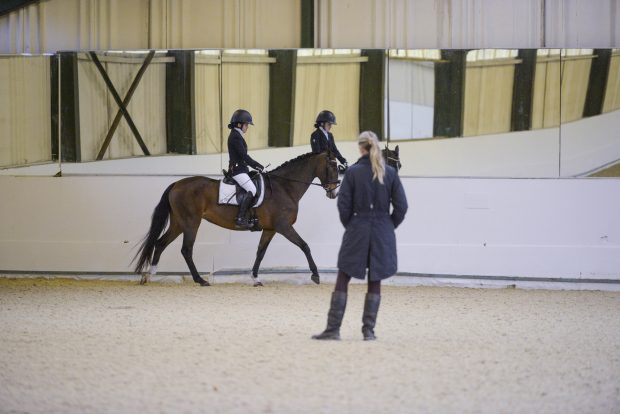View horses for sale
More articles on buying horses
Q: I have just paid £5,500 for a lovely 16hh Thoroughbred six-year-old gelding from a horse dealer, who I hope to take eventing.
However, after being at my yard for just one week, I have noticed he crib bites. I have a contract with the horse dealer but it doesn’t mention anything about stable vices. The horse was vetted but the vet didn’t pick it up.
Although I already love the horse, I wouldn’t have bought him if I’d known he was a crib biter, as I’m aware it could cause long-term health problems. I called the horse dealer and he denies ever seeing the gelding crib bite and refuses to take the horse back, saying he must have developed the problem since I’ve had him.
What is my legal position? Is there a way I can secure a full refund?
A: As the gelding was bought from a horse dealer, he was sold in the course of a business, rather than a private sale, so the contract probably qualifies as a consumer transaction.
If this was an agreement which fell within the Sale of Goods Act, the horse dealer is under a legal obligation to ensure the horse was ‘reasonably fit for the purpose for which it was sold‘ – in this case eventing.
You must establish that the horse dealer induced you to enter into the agreement with words said, either verbally or in writing (an advertisement), which subsequently turned out to be untrue.
However, even if you can establish the horse dealer was aware the horse was a crib biter, this alone would not amount to a misrepresentation.
It must be proved the horse was suffering from some illness associated with crib biting. The fact the horse is a crib biter doesn’t make it unsuitable for eventing.
It may be an undesirable habit but it is not, in itself, an illness – many horses which crib bite don’t suffer adverse effects.
Hence the link between the horse being a crib biter and its eventing performance being affected has not been established. Without this link in the chain, it is difficult to see what loss the purchaser has suffered and, unless a breach of contract or other loss is established, you will not receive a refund.
It is reasonable to expect a vet to carry out an inspection with due diligence but it would be rather harsh to hold a vet responsible if, upon examination, the horse had not shown signs of health problems as a result of crib biting. The horse may not even have been in a stable when he was examined.
You must, therefore, seek advice from a solicitor and then establish the facts about your case before taking action.
When you buy a horse the common law maxim ‘caveat emptor’ (buyer beware) is as relevant today as it was in the past.
Ideally, when you buy a horse, ask the seller to sign a statement saying they know of no health problems, bad habits or other impediments which might affect the purpose for which the horse is being purchased.
The same rule applies to pre-sale examinations by a vet, who will primarily be concerned with the welfare of the animal, rather than the prudence of the purchaser. In short, preparation is everything, whereas assuming anything can be costly.
Find horses for sale near you
Looking for more articles on buying horses?
Buying a new horse? Compare insurance prices at horseandhound.co.uk/insurance




